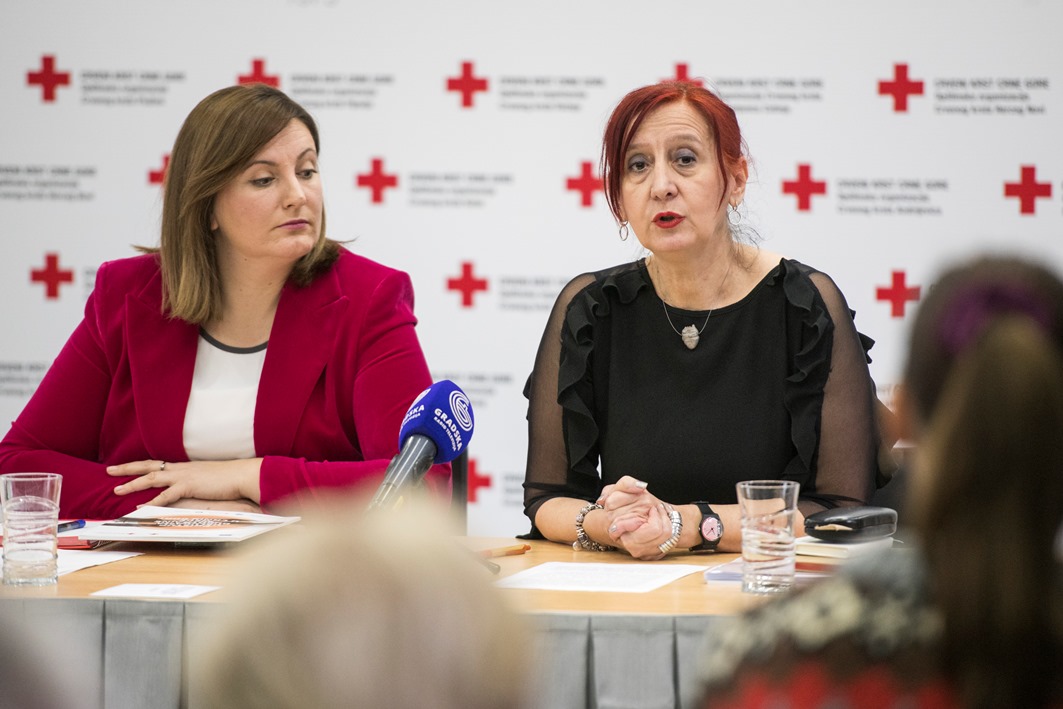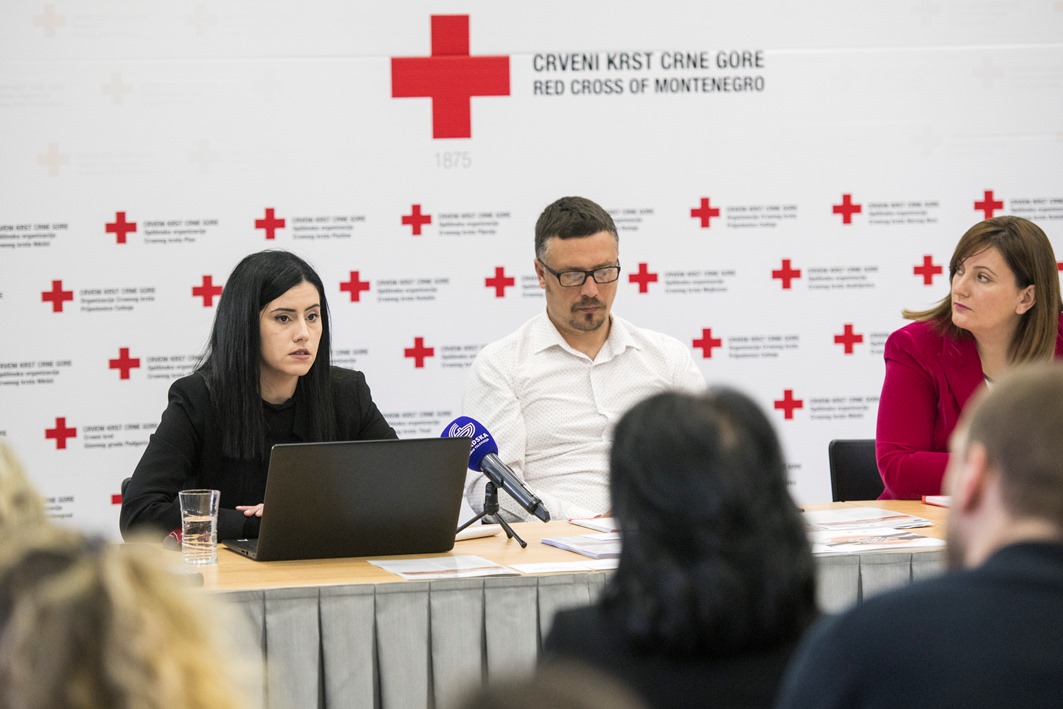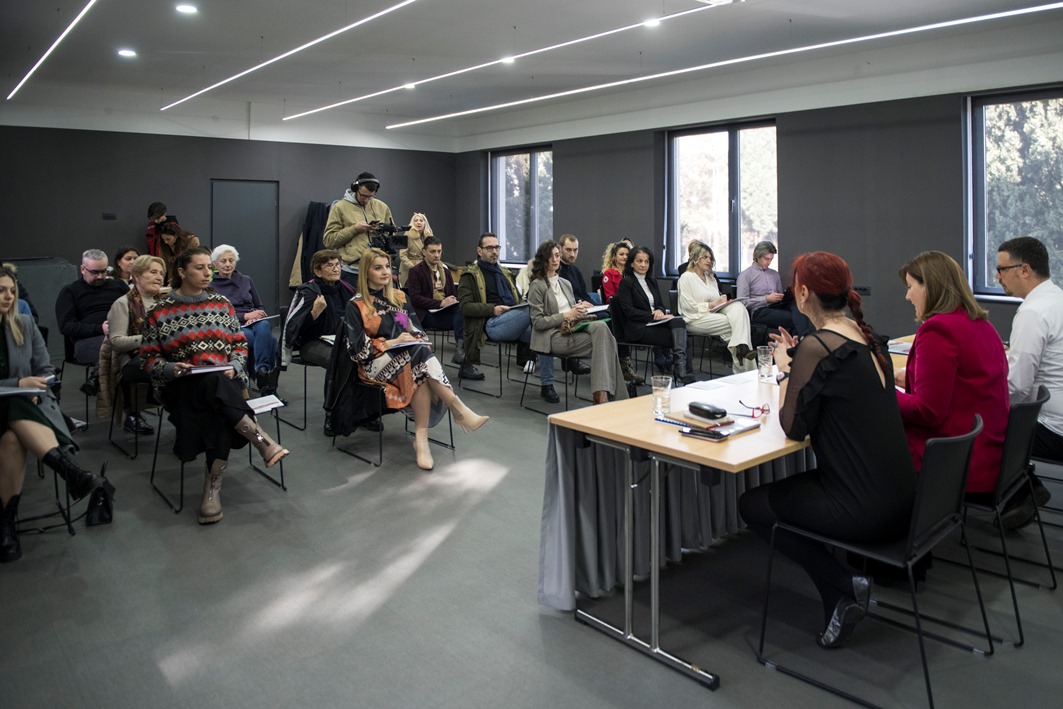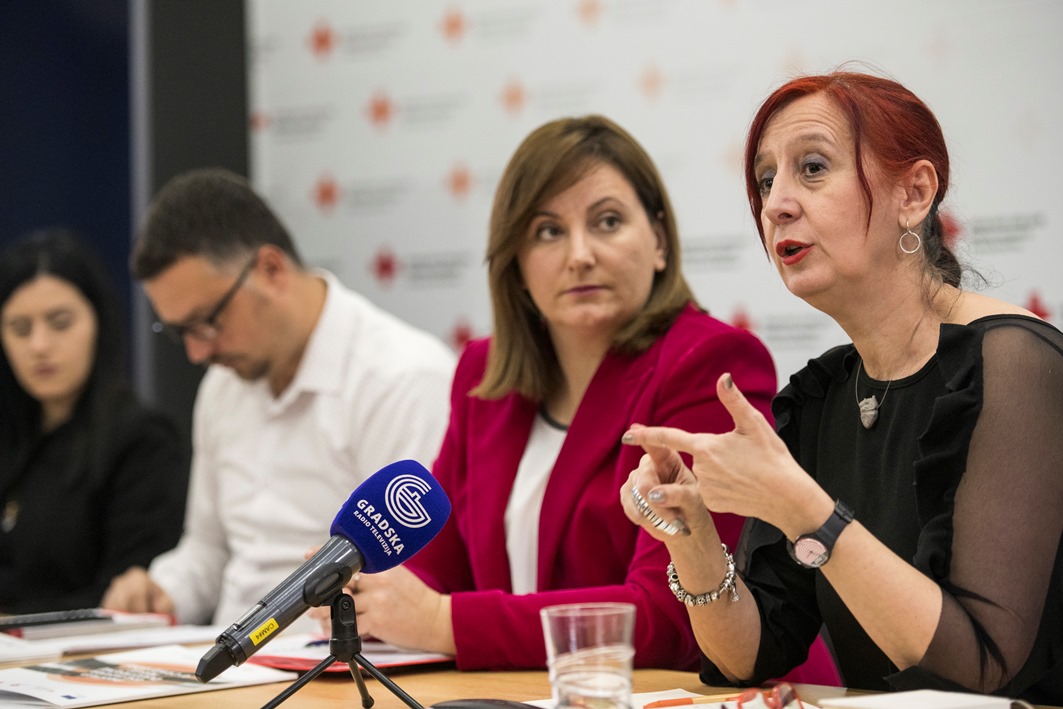Presentation of the study “Access to long-term care services in Montenegro”
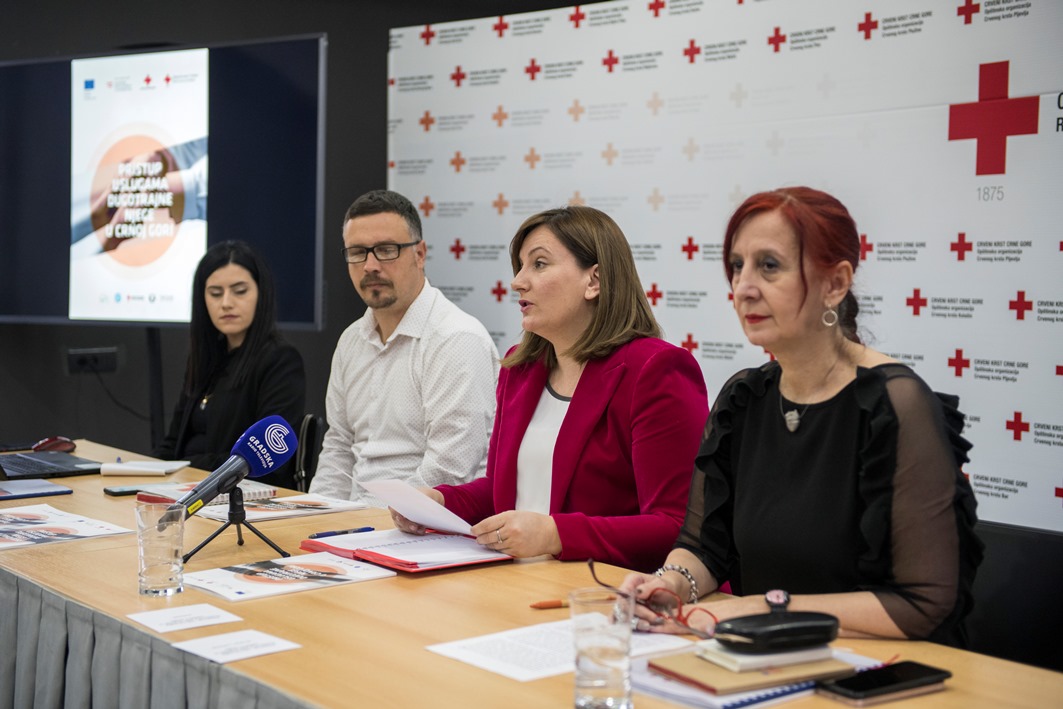
On January 31, representatives of the Red Cross of Serbia participated in the presentation of the most important results of the study “Access to long-term care services in Montenegro” in Podgorica. This study was created as part of the three-year project “Strengthening the resilience of older persons and persons with disabilities during COVID-19 and future disasters” which the Red Cross of Serbia coordinates with the support of the European Union, the Austrian Development Agency and the Austrian Red Cross. This project is implemented in Serbia, Albania, Bosnia and Herzegovina, Montenegro, North Macedonia and on the territory of Kosovo*, and one of the most important components of the project is research on access to long-term care services in all territories as well as public advocacy based on the results of this research.
The Secretary General of the Red Cross of Montenegro, Jelena Dubak, opened the press conference and emphasized the importance of the results of this study, which will serve as a foundation for further research and improvement of the position of informal caregivers, as one of the most important pillars of the long-term care service system.
Nataša Todorović, the representative of the Red Cross of Serbia and the coordinator of this regional project, stated that this is a pioneering undertaking for the region and an effort to assess the existing capacity of the system for providing long-term care services through desk research, quantitative and qualitative analysis, as well as to envision how the needs for these services will be increasing grow, how much it will cost societies in the Western Balkans, and how to ensure that in the future everyone has the kind of care they will need. She explained that the whole of Europe is facing demographic changes that are sharply increasing the need for long-term care, and that public policy makers everywhere are grappling with the question of how to increase the volume of services and make them more accessible while keeping their costs under control. She concluded that this is a big challenge at global level as well, and that this is precisely why research such as this is valuable.
Tijana Veljković from SeConS – the development initiative group that was in charge of conducting the analysis and formulating recommendations, presented the results of the research, emphasizing that this study was carried out according to the same methodology for all six project sites, after which the results will be sublimated within the framework of a regional study that will be the basis for formulating recommendations on how to increase the capacities of service providers and civil society organizations, how to improve public policies and increase financial contributions and thus ensure better access to long-term care services for the older persons and persons with disabilities under regular circumstances, and especially in cases of emergency situations such as the COVID-19 pandemic.
The research results show that in Montenegro, 44.9% of persons over 65 years have great difficulties in performing activities of daily life. Gender differences are especially pronounced, so women need more help than men do.
In the group of persons with disabilities aged 18-64, 83% need long-term care due to difficulties in performing activities of daily life. In the research sample, 42% of respondents had difficulties with movement and 33% had visual impairment. As expected, the research showed the key role of informal caregivers in providing support to older persons and persons with disabilities. Key providers of informal care are children (54.4%), spouses (24.7%), parents (13.3%), brother or sister (2.5%), or other relatives (2.2%). Two thirds of informal caregivers (65.5%) do not receive any support from health or social care institutions or humanitarian organizations.
* This designation is without prejudice to positions on status, and is in line with UNSCR 1244/1999 and the ICJ Opinion on the Kosovo declaration of independence.
Photo – Dejan Kalezić
